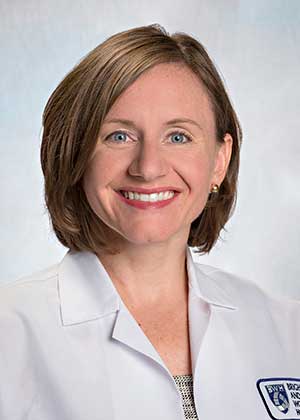Anti-Ableist Oncology Care
Takeaways
- In general, cancer patients with physical disabilities have poorer outcomes than others because of less access to care and clinician knowledge gaps about treatment decision-making.
- One form of bias is that scales for rating performance status incorporate ableist language that makes it difficult for a clinician to fairly evaluate a patient who has a physical disability.
- It is essential to broaden the evaluation of a person with a disability to account for their ability to function in their environment as independently as possible.
- Rehabilitation providers who have experience managing patients with cancer can be valuable members of oncology care teams and tend to be underutilized.
 Ableism, broadly defined, is discrimination toward people with disabilities, including the use of language that excludes their unique needs and skills, normalizes people with typical abilities, and suggests those with disabilities require "fixing."
Ableism, broadly defined, is discrimination toward people with disabilities, including the use of language that excludes their unique needs and skills, normalizes people with typical abilities, and suggests those with disabilities require "fixing."
Cheri Blauwet, MD, chief medical officer at Spaulding Rehabilitation, and colleagues recently published an editorial about ensuring equity in healthcare for people with physical disabilities, with a focus on cancer care and rehabilitation. It appears in The Lancet Oncology.
The Impact of Ableism
In general, cancer patients with physical disabilities have poorer outcomes than others because of problems across the continuum of care:
- Lack of access to clinics and equipment
- Lower rates of screening and staging investigations
- Clinician knowledge gaps that can lead to care rationing, nonstandard treatment, and dangerous medical errors
- Complications in shared treatment decision-making or exclusion of patient input
Even the threat of discrimination — through language, policies, and infrastructure that exclude people without typical physical abilities — is enough to reduce healthcare access and quality.
Evaluating Performance Status
A notable knowledge gap in cancer care for people with physical disabilities involves the evaluation of performance status. The two most widely accepted measures, the Karnofsky scale, and the Eastern Cooperative Oncology Group (ECOG)/World Health Organization scale, include ableist language that makes it difficult for a clinician to rate someone with a physical disability appropriately.
For example, on these scales, the best possible rating for people using a wheelchair is:
- Karnofsky scale — 40 ("Disabled, requires special care and assistance")
- ECOG scale — 3 ("Capable of only limited self-care, confined to bed or chair more than 50% of waking hours")
If the scales are interpreted literally, an active person living independently using a wheelchair has a lower performance status than a person with a sedentary lifestyle who does not use a wheelchair. The language on the scales can discourage delivery of antineoplastic treatment to patients who are good candidates.
Implications for Rehabilitation Professionals
Measuring the performance status of a person with a disability requires a holistic look at the adaptations they use in daily life, the need for assistance and environmental barriers they encounter. The provider should also strive to understand how treatment toxicities might affect the person's ability to live independently. For example, can a person with a lumbar spinal cord injury still perform pressure relief if they are weaker? Additional assessments of health, including cardiac function, might be required.
To further improve clinical care, the editorialists suggest increased "dosing" of rehabilitation care for hospitalized patients, incorporating rehabilitation into collaborative symptom management, and streamlining rehabilitation interventions for patients at risk of disablement.
About Mass General Brigham
Mass General Brigham is an integrated academic health care system, uniting great minds to solve the hardest problems in medicine for our communities and the world. Mass General Brigham connects a full continuum of care across a system of academic medical centers, community and specialty hospitals, a health insurance plan, physician networks, community health centers, home care, and long-term care services. Mass General Brigham is a nonprofit organization committed to patient care, research, teaching, and service to the community. In addition, Mass General Brigham is one of the nation’s leading biomedical research organizations with several Harvard Medical School teaching hospitals. For more information, please visit massgeneralbrigham.org.
